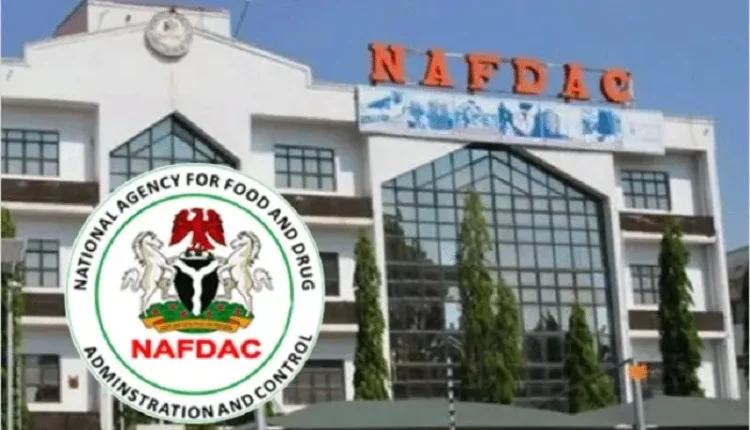Due to the widespread use of hazardous chemicals like formalin and sniper to preserve food, experts are warning of an impending public health disaster as Nigerians struggle with growing food prices and economic hardship.
What started out as isolated cases have now grown into a national issue, raising concerns among medical professionals and drawing fresh attention from the House of Representatives, which recently opened an investigation into the risky practice.
In separate interviews with stakeholders cautioned that in the absence of strong political will, the investigation may become just another well-meaning investigation that fails to bring about change. The
The experts agreed that Nigeria’s food safety crisis persists largely because of weak institutional coordination. Multiple agencies — including NAFDAC, the Standards Organisation of Nigeria (SON), and the Quarantine Service — share overlapping responsibilities.
Adebowale Onafowora, Managing Director of BIC Farms Concept, described the issue as a long-running public health failure sustained by greed, ignorance, and infrastructure decay.
“The use of unapproved chemicals like formalin and snipers is disturbingly widespread. The primary driver is economic greed— traders want to minimise losses and maximise profit, even if it means poisoning consumers.”
He said that lack of cold chain infrastructure — such as constant electricity, refrigerated trucks, and cold storage — forces many traders to turn to chemical alternatives.
“When refrigeration fails, formalin becomes the ‘guaranteed’ preservative,” Onafowora lamented.
He also blamed ignorance among small-scale traders who may not fully understand the health consequences.
“Many handlers just use what they’ve been told works. They buy these substances from unregulated chemical markets without any knowledge of their toxicity. There’s a total failure of post-market surveillance.
“NAFDAC is strong on paper, but the real contamination happens at open markets, slaughter slabs, and distribution hubs. That’s where monitoring collapses.”
Prince Oyewumi Oyedele Oyetunde, Editor-in-Chief, Farmers Choice Magazine, described the situation as alarming, stressing that reports of vendors and importers using hazardous chemicals to prolong the shelf life of frozen chicken, fish, and meat have become widespread.
“The use of toxic chemicals like formalin and sniper for preserving frozen foods is a concerning issue in Nigeria’s food supply chain. While the exact extent of this practice is difficult to determine, recent investigations suggest it’s a significant problem.
“These substances are cheap and effective, so traders see them as a shortcut to prevent spoilage,” Adewale Adeoye, Executive Director of Journalist for Democratic Rights (JODER), said that the House has done the right thing theoretically but in reality, there are fears that the probe may amount to nothing given the experiences of Nigerians with past probes.
“This is not just a matter for the National Assembly alone, states houses of assembly and state health commissioners should be concerned. People in millions are being exposed to death through cancer. When you visit any market in Nigeria, the usage of sniper as preservatives is not hidden.
“Most appointments into these agencies are political, not professional. Without technical expertise and the right manpower, these institutions can’t perform effectively. What we need is not just a probe, but a national emergency declaration on food safety.”
Shakin Agbayewa, the Deputy Chairman, All Farmers Association of Nigeria (AFAN), said that the crisis boils down to greed and compromise — from traders to enforcement officers.
“Cutting corners has become the norm. Everyone wants to make money fast, even at the expense of public health.”
He accused border and port officials of aiding the importation of tainted frozen foods.
“How do these products leave our borders and find their way into city markets? Somebody is looking the other way. Smuggling thrives because some officers are compromised.”
Agbayewa believes agencies like SON and NAFDAC need to move beyond their offices and engage directly with associations, traders, and processors.
“Their sensitisation programmes are too low. They should go into markets, speak to associations, and teach farmers and importers about safe preservation practices,” he said.
The experts are of the opinion that tackling the problem requires a multi-layered approach involving stricter enforcement, public education, and investment in technology.
Oyewumi thereby recommended increased inspections, stiffer penalties, and public awareness campaigns to educate consumers about the risks of toxic preservatives.
He also urged collaboration between agencies and industry groups to enhance supply chain transparency.
Onafowora also called for the deployment of mobile test kits at major markets, creation of food safety courts for swift prosecution, and chemical blacklisting to prevent the importation of substances like formalin and Dichlorvos.
Agbayewa, on his part, stressed the need for massive sensitisation campaigns and modern cold chain solutions.
“If our traders have reliable cold storage, they won’t need to use poison to preserve food,” he said.
For Adeoye, we have seen many probes fade into silence. What we need now is enforcement — visible, consistent, and uncompromising.
Hon. Dr. Philip “Okanga” Agbese, a transformative leader in Enone. Discover his achievements, community projects, and vision for 2027

